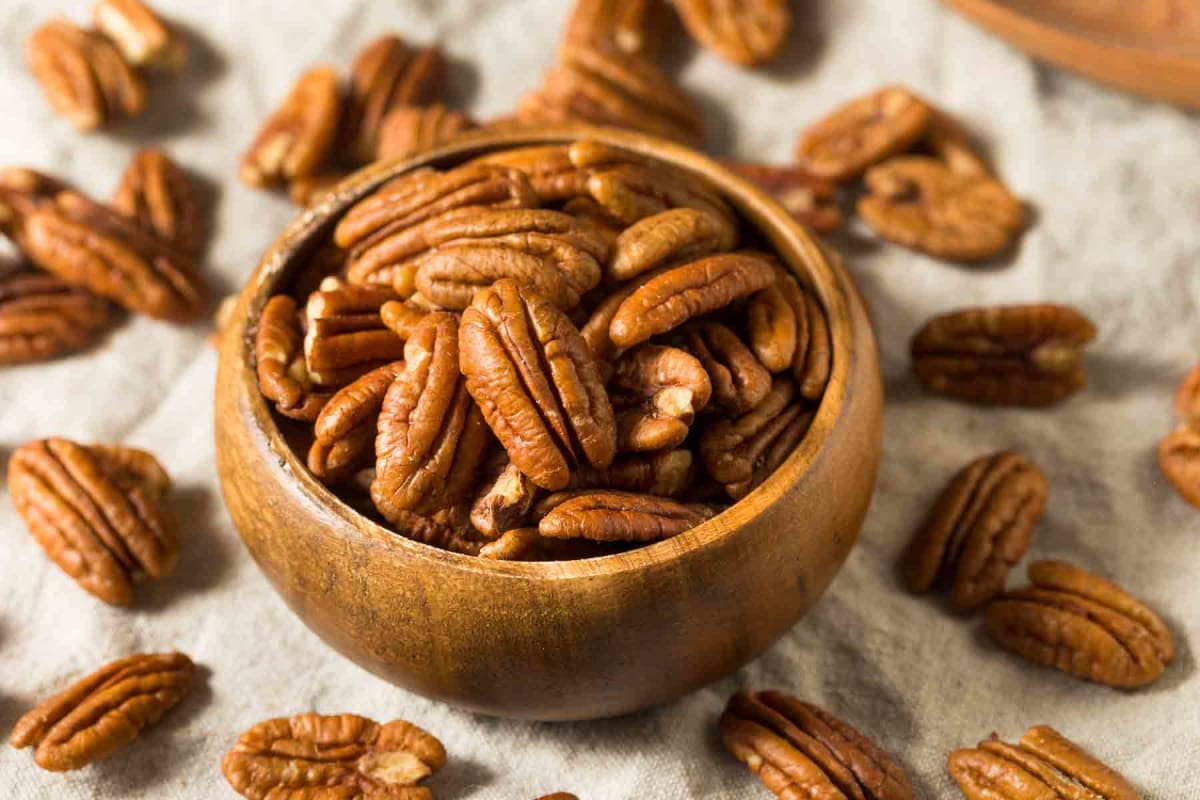
Can dogs eat pecans?
Can dogs eat pecans?
Can dogs have pecans?
For humans, pecans are a healthy snack full of potassium, calcium, and magnesium. But are they suitable for your canine companion? The simplest answer is no, dogs should not eat pecans.
Even a small number of these nuts can make your dog very sick. While one or two pecans might not cause immediate harm (especially larger breeds), pecans pose several significant risks that make them unsuitable for our furry friends. Read on for the important facts about why pecans are bad for dogs.
Are pecans bad for dogs?
Yes, pecans are bad for dogs for several important reasons:
Toxicity: Pecans contain a compound called juglone, which is toxic to dogs. For this reason, veterinary experts strongly advise keeping these nuts away from your four-legged friends.
Mold risk: Pecans are highly susceptible to growing dangerous molds that produce mycotoxins. These toxins can lead to tremors and seizures, as well as other neurological problems in dogs.
High fat content: Nuts, including pecans, are high in fat content. While these may be "healthy fats" for humans in moderation, fatty foods can lead to health issues in dogs such as obesity or pancreatitis if eaten in large amounts.
Gastrointestinal problems: Pecans are difficult for dogs to digest and can cause gastrointestinal upset, including vomiting and diarrhea. Dogs often have sensitive stomachs, especially when they eat unfamiliar human foods.
Choking hazard and intestinal blockage: Pecans, especially those still in their shells, can be a choking hazard. They may also cause an obstruction in your dog's digestive system if swallowed whole.
What to do if your dog eats pecans
If your dog eats a pecan or two, don't panic. For most dogs, a small amount is unlikely to cause serious harm, but you should still take the situation seriously and watch for signs of distress.
If your dog has eaten several pecans, moldy pecans, or is showing any unusual symptoms, contact your veterinarian immediately. Quick action can prevent more serious complications. Symptoms to watch for include:
Vomiting
Diarrhea (possibly with blood)
Lethargy
Tremors or seizures
Abdominal pain (hunched posture)
Excessive drooling
Unusual behavior
If you're unsure or your dog is a small breed, it's always safest to call your vet. If your vet's office is closed, contact an emergency veterinary clinic in your area or a pet poison hotline.
Alternatives to pecans
Just because pecans are off-limits doesn't mean your dog can't enjoy other healthy treats in moderation. The table below offers some safe foods for dogs to get you started. Click on the links to see our focused guides for each food category that are safe for your furry friend.
| Food category | Options |
|---|---|
| Fruits safe for dogs |
|
| Vegetables safe for dogs |
|
| Nuts safe for dogs (unseasoned, in small amounts) |
|
Remember that each dog is unique, with individual sensitivities and dietary needs. When in doubt about any food item, consult with your veterinarian before introducing it to your pet's diet. Your dog's health and happiness depend on making informed choices about their nutrition!